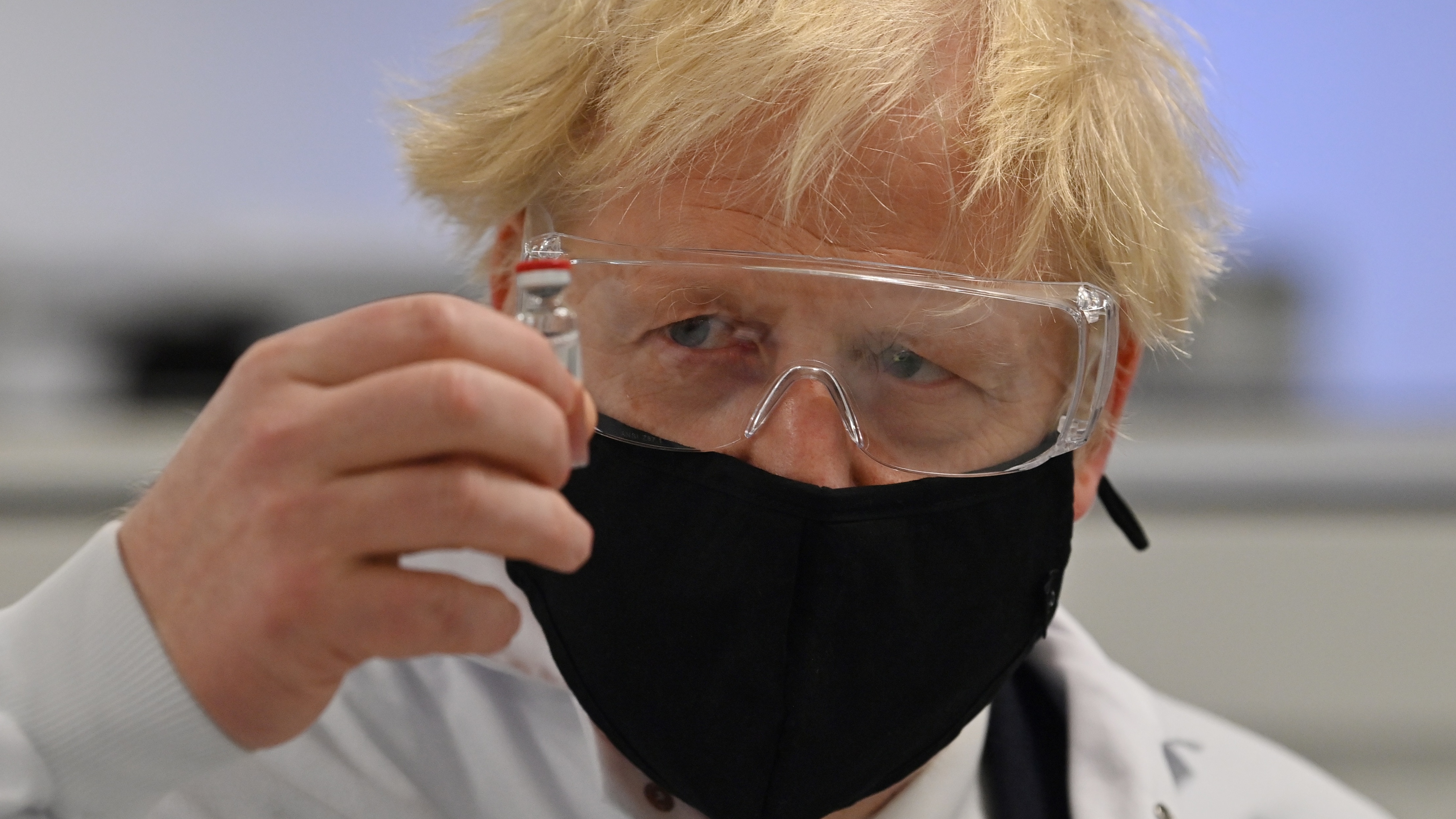How German media wound up misrepresenting the AstraZeneca jab
Political briefings - not facts and figures - may explain ‘incorrect’ claims

A free daily email with the biggest news stories of the day – and the best features from TheWeek.com
You are now subscribed
Your newsletter sign-up was successful
The German newspaper behind widely denied reports that the Oxford-AstraZeneca vaccine is only 8% effective in over-65s has doubled-down on its claims.
After the story was denied by both the German Health Ministry and the drug’s maker, Handelsblatt published a second article, headlined “controversy over AstraZeneca vaccine”, repeating “concerns about a low level of protection among seniors”. The story was also amplified by German tabloid Bild, which claimed the efficacy of the drug among over-65s was “less than 10%”, also citing anonymous sources.
Attributing the claims to a “multiple sources familiar with the German vaccination policy”, the journalist behind the Handelsblatt story has tweeted that the story is “a sourced piece of (political) reporting”, suggesting that it is not based on data seen by the paper.
The Week
Escape your echo chamber. Get the facts behind the news, plus analysis from multiple perspectives.

Sign up for The Week's Free Newsletters
From our morning news briefing to a weekly Good News Newsletter, get the best of The Week delivered directly to your inbox.
From our morning news briefing to a weekly Good News Newsletter, get the best of The Week delivered directly to your inbox.
AstraZeneca chief executive Pascal Soriot has denied the story in no uncertain terms, telling La Repubblica that “it’s incorrect… I don't know where these numbers come from”. Calling for people to “really focus on the details and focus on the regulators”, Soriot added: “There may also be local political considerations sometimes?”
And this is where the cracks within Handelsblatt’s reporting may be explained.
Writing in the New Statesman, international correspondent Ido Vock notes that the report “emerged as a political story, briefed from political sources”. In other words, the Handelsblatt stories appear to be based not on facts and figures, “but briefings and counter-briefings from anonymous sources” that risk “muddying the waters by throwing around incendiary claims”.
In normal political coverage, basing stories on anonymous briefings is standard practice. But “the virus is not a political story suited to the palace intrigue of political journalism”, Vock says. “It is a medical story, and data such as the efficacy of a vaccine is not determined by government deliberation.”
A free daily email with the biggest news stories of the day – and the best features from TheWeek.com
In Handelsblatt’s follow-up story, published by last night, an anonymous source denied claims by the head of the European Medicines Agency and the German government that the report had confused the proportion of elderly people involved in clinical trials of the vaccine and its effectiveness among those age groups.
“Confusing the numbers is impossible,” the source reportedly said,
But more anonymous briefings - and no solid figures - have done little to diffuse the suggestion that the original story “was a load of cobblers”, says Politico’s Alex Wickham.
Joe Evans is the world news editor at TheWeek.co.uk. He joined the team in 2019 and held roles including deputy news editor and acting news editor before moving into his current position in early 2021. He is a regular panellist on The Week Unwrapped podcast, discussing politics and foreign affairs.
Before joining The Week, he worked as a freelance journalist covering the UK and Ireland for German newspapers and magazines. A series of features on Brexit and the Irish border got him nominated for the Hostwriter Prize in 2019. Prior to settling down in London, he lived and worked in Cambodia, where he ran communications for a non-governmental organisation and worked as a journalist covering Southeast Asia. He has a master’s degree in journalism from City, University of London, and before that studied English Literature at the University of Manchester.